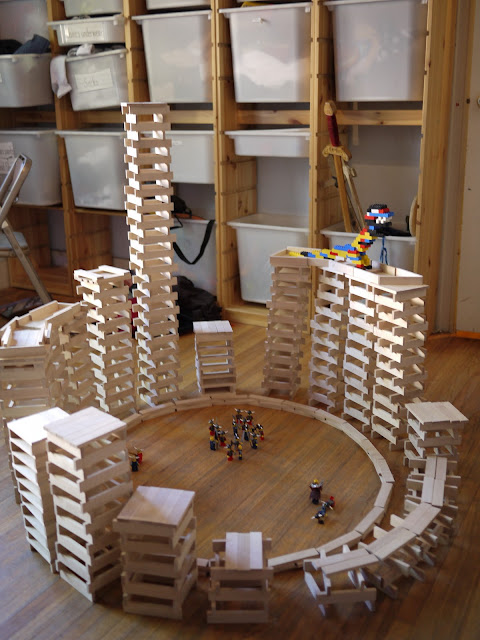Most of the homeschoolers I know choose to use a charter school to guide their homeschooling (thus participating in the public school system), in part because they receive government monies to pay for things such as classes, field trips, curricula, and other books. Some say they like having the guidance of a teacher to choose materials and to assess progress, some make this choice to receive special education services from the government, some have a spouse or ex-spouse who will only go along with homeschooling if they choose a charter, and some say they do it because they can't provide their children with the same opportunities otherwise. All are valid reasons and I've learned not to let my preferences lead me to judge others.
I do chafe, just a little, at the idea that only well-off families can afford to choose independent homeschooling. I know families who do it on incomes that are decidedly middle class (even bordering on working class, and just for the record, I hate the idea of a class system and am referring to economic class here, using the Gilbert system). Indeed, most of the people I know who fall into the capitalist class or upper middle class choose private schooling for their children, not homeschooling.
But I digress. My point is that in many areas there are resources available for low or no cost. Public libraries offer books, of course, but also music, movies, and computer programs that can be borrowed and computer workstations for use. Beyond this they offer story times and crafts for younger children, games and crafts for older children, book clubs, anime clubs, and often performances. For older teens some libraries offer classes on local history.
Universities are another resources, and not only public universities. There are often recitals given at no cost and concerts and plays priced very affordably. They may have art exhibits, cultural festivals, Earth Day celebrations, and more. Our local private college hosted a Harry Potter exhibit and offered classes including and absolutely fabulous one on "Potions" which of course was chemistry. My boys loved it. Some universities offer lending privileges for the public. We live close enough to our alma mater to take advantage of not only the library, but also free admission to sporting events (many universities offer some sporting events for free to anyone).
Small theaters often have special performances for children as well as group rates. An often over-looked resource for exposing children to plays and musicals are local high schools; most of what they perform will be suitable for older children and some offer theater festivals for young children. They also offer dance and music performances.
Many cities offer free concerts in the park during the summer (in Our Town we have the longest running outdoor summer music festival in the country). They may also sponsor art walks, art in the park, and more. Our Town has musicians performing in the downtown area every Friday evening.
Independent coffee shops can't be left out! They may host live musical performances (singer-songwriters and jazz seem to be very popular) as well as poetry readings.
Bookstores are becoming harder to find, but even chain bookstores host many events such as story times, book readings, book clubs, musical performances, poetry readings, and more. Our local children's bookstore brings authors in regularly, to read and sign their books. They also bring in illustrators and the walls are decorated with drawings done by these illustrators.
County museums can be another resource; ours allows teachers (and homeschoolers) to check out educational materials. An annual membership is very reasonable (usually under $50) and most hold free days throughout the year.
We seek out little museums wherever we can find them, and they aren't hard to find, plus they are usually free. Along the same vein, many small businesses offer tours; you many be able to see how cheese is made or how olives are cured and packed.
There are many more things I can think of, but I think this post is full enough for now!

































